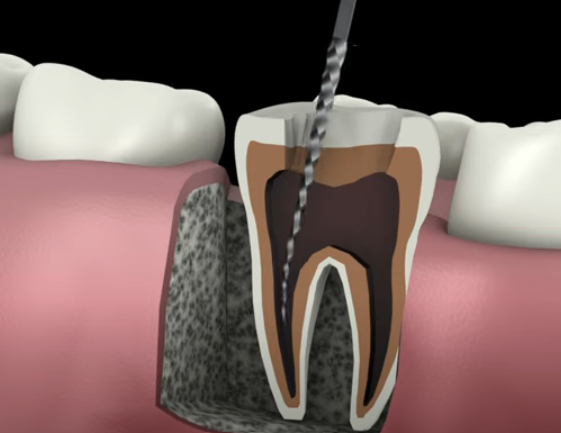Does Root Canal Treatment Kill Your Tooth?
Root canal treatment is a common dental procedure that is often misunderstood. Some people believe that root canal treatment kills the tooth, but this is not true. In fact, root canal treatment can save a tooth that would otherwise need to be extracted.
What is root canal treatment?
Root canal treatment is a procedure that removes the infected or damaged pulp from the inside of a tooth. The pulp is the soft tissue that contains nerves and blood vessels. When the pulp becomes infected, it can cause pain, swelling, and tooth loss.
How does root canal treatment work?
Root canal treatment is performed under local anesthesia, so you will not feel any pain during the procedure. The dentist will make a small hole in the tooth and then use special tools to remove the infected pulp. The root canal will then be cleaned and sealed to prevent future infection.
Does root canal treatment kill the tooth?
No, root canal treatment does not kill the tooth. The tooth remains alive after the procedure, but it no longer has any nerves or blood vessels. This means that the tooth will not be able to feel pain or bleed.
Why is root canal treatment necessary?
Root canal treatment is necessary to save a tooth that is infected or damaged. If the tooth is not treated, the infection can spread to the surrounding tissues and cause more serious problems. Root canal treatment is also necessary to prevent tooth loss.
Are there any risks associated with root canal treatment?
There are some risks associated with root canal treatment, but they are rare. These risks include:
- Infection: The risk of infection is very low, but it can happen. If you experience any pain, swelling, or redness after your root canal treatment, be sure to see your dentist right away.
- Tooth fracture: There is a small risk that the tooth could fracture after root canal treatment. This is usually due to a pre-existing weakness in the tooth.
- Allergic reaction: There is a very small risk of an allergic reaction to the local anesthetic or other materials used during root canal treatment.
Is root canal treatment painful?
Root canal treatment is performed under local anesthesia, so you will not feel any pain during the procedure. However, you may experience some discomfort afterwards. This discomfort can be managed with over-the-counter pain medication.
Is root canal treatment worth it?
Root canal treatment is a valuable procedure that can save a tooth that would otherwise need to be extracted. The cost of root canal treatment varies, but it is usually less expensive than the cost of replacing a tooth with a dental implant or bridge.
If you have a tooth that is infected or damaged, talk to your dentist about whether root canal treatment is right for you. With proper care, a tooth that has had root canal treatment can last for many years.
In addition to the points mentioned above, here are some other benefits of root canal treatment:
- It can prevent the spread of infection to other teeth and tissues.
- It can help to maintain your bite alignment.
- It can improve your chewing ability.
- It can boost your self-confidence.
If you are considering root canal treatment, be sure to talk to your dentist about the risks and benefits. With proper care, a tooth that has had root canal treatment can last for many years.

